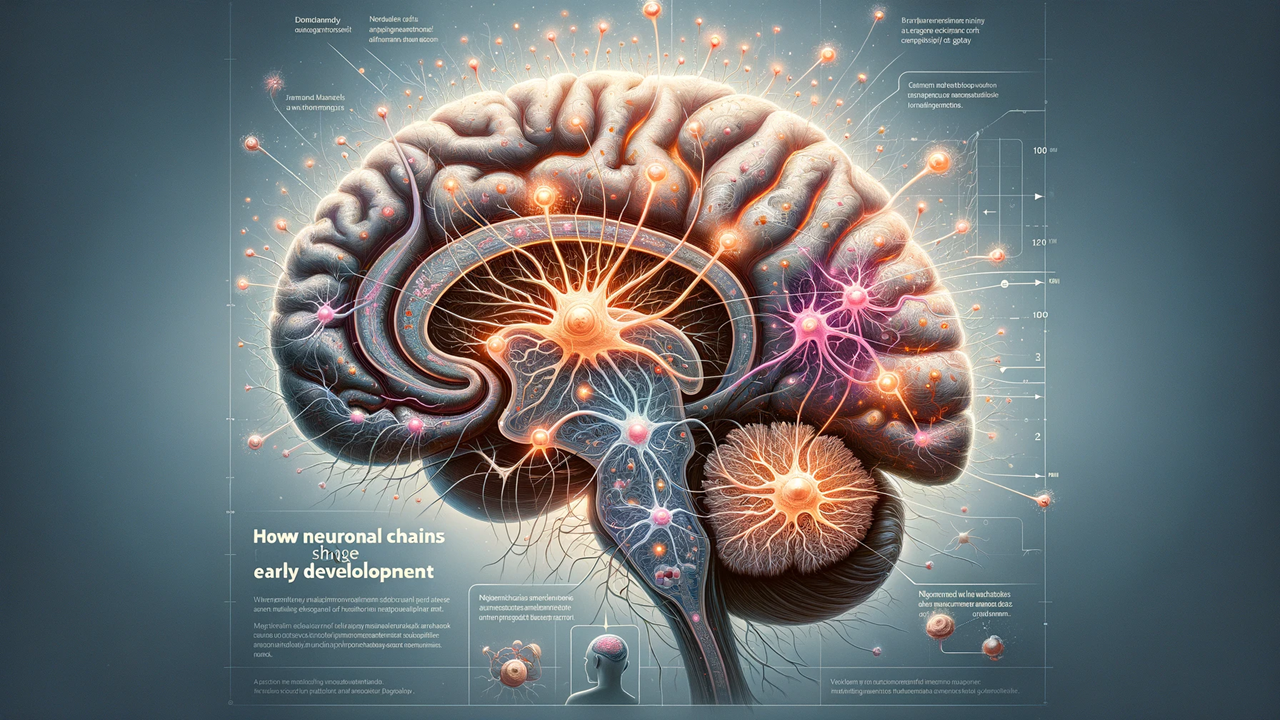How Neuronal Changes Shape Early Brain Development
This article explores groundbreaking research into the specific neurons that regulate critical transitions in brain activity during early development. It discusses how these discoveries could impact the understanding and treatment of neurodevelopmental disorders like epilepsy and autism, highlighting potential new therapies and the importance of genetic and environmental factors in brain development.

Understanding the complexities of the human brain, particularly during its early developmental stages, has long been a priority for neuroscientists. Recent groundbreaking research has shed light on the specific neurons involved in the transitional phases of brain activity in early development. This discovery could significantly enhance our understanding of neurodevelopmental disorders such as epilepsy and autism. The article, "Unlocking the Mind: How Neuronal Changes Shape Early Brain Development," delves into these findings and their implications for future treatments and diagnostic approaches.
The Significance of Neuronal Transitions
Neuronal transitions during brain development are critical periods when the neural network undergoes substantial changes. These transitions are pivotal for the maturation of cognitive and behavioral functions and are influenced by both genetic and environmental factors. The neurons responsible for these transitions act as regulators, ensuring that the brain's developmental processes proceed correctly.
Identifying Key Neurons
Researchers have identified specific types of neurons that play crucial roles in the regulation of brain activity transitions during early development. These neurons, by modulating brain activity, help in establishing the necessary neural circuits for normal cognitive and emotional functioning. Understanding these neurons allows scientists to pinpoint critical periods in brain development, which is essential for diagnosing and potentially intervening in neurodevelopmental disorders.
Implications for Neurodevelopmental Disorders
The impact of understanding these neuronal transitions extends significantly into the medical field, particularly in understanding and treating conditions like epilepsy and autism. Epilepsy involves abnormal neuronal activity, and insights into the neurons that regulate brain transitions could lead to better management of such abnormalities. Similarly, autism, characterized by developmental delays and behavioral changes, could be better understood through the lens of neuronal transition dynamics, offering new avenues for therapeutic intervention.
Research Methodologies
The research utilized a combination of advanced imaging techniques, genetic analysis, and computational modeling to identify and understand the functions of these key neurons. By observing brain activity in real-time during early development, scientists were able to see how certain neurons influenced overall brain function and how disruptions in their activity could lead to disorders.
Potential for New Treatments
With these neurons identified, the potential for new treatment methods becomes palpable. For instance, targeted therapies could be developed to modulate the activity of these specific neurons, thereby correcting or mitigating the developmental disruptions seen in neurodevelopmental disorders. This could involve gene therapy, pharmacological interventions, or neuromodulation techniques.
The Role of Genetics and Environment
This research also highlights the interaction between genetic predispositions and environmental factors in brain development. The activity of the identified neurons can be influenced by external conditions, such as stress or trauma, which underscores the importance of a nurturing environment during critical developmental periods.
Challenges and Ethical Considerations
While the findings are promising, they also present challenges and ethical considerations, particularly concerning interventions in the brain during early development. The potential to alter neuronal activity raises questions about long-term impacts and the ethical implications of early intervention based on genetic predispositions to neurodevelopmental disorders.
Future Directions
The field is ripe for further exploration. Future research could explore how these neuronal transitions vary among individuals and how they correlate with the spectrum of neurodevelopmental outcomes observed in the population. Additionally, longitudinal studies could track the long-term effects of early neuronal transition patterns on later-life cognitive and emotional health.
Conclusion
The identification of neurons responsible for critical transitions in brain development marks a significant advance in neuroscience. This research not only enhances our understanding of fundamental brain processes but also opens new pathways for the diagnosis and treatment of complex neurodevelopmental disorders. As science continues to unlock the mysteries of the brain, we edge closer to more effective interventions that could improve the lives of those affected by these conditions.










